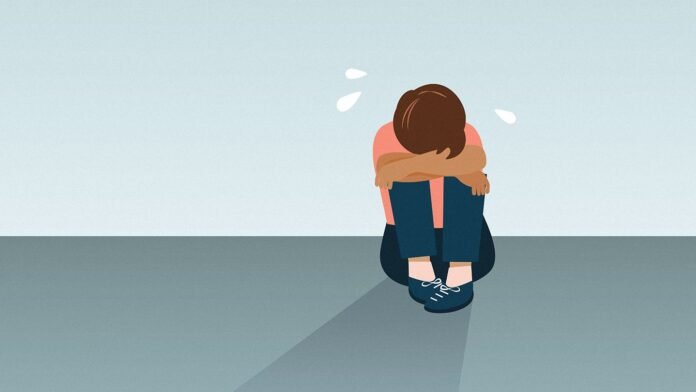Childhood is a formative period marked by exploration, learning, and growth. However, for some individuals, it can also be a time of adversity and distress. Childhood trauma refers to experiences of physical, emotional, or abuse, neglect, domestic violence, or any situation that threatens a child’s physical or emotional well-being.
Such traumatic experiences during early development can have profound and lasting psychological effects that extend well into adulthood. In this article, we will delve into the concept of childhood trauma and its significant psychological impact.
Types of Childhood Trauma:
Childhood trauma encompasses a wide range of experiences, including:
- Physical Abuse: Infliction of bodily harm or injury by a caregiver or authority figure.
- Emotional Abuse: Verbal or psychological maltreatment that undermines a child’s self-esteem and emotional well-being.
- Neglect: Failure to provide basic physical, emotional, or educational needs.
- Domestic Violence: Witnessing or experiencing violence between caregivers or family members.
- Loss of a Loved One: Death or absence of a parent, sibling, or other significant figure.
- Medical Trauma: Painful or distressing medical procedures or chronic illness.
Psychological Impact:
Childhood trauma can lead to a range of psychological consequences that vary based on factors such as the nature of the trauma, the child’s age, and the support systems available. Some common psychological effects of childhood trauma include:
- Post-Traumatic Stress Disorder (PTSD): Children who experience trauma may develop symptoms of PTSD, including flashbacks, nightmares, and hypervigilance.
- Anxiety and Depression: Traumatic experiences can contribute to the development of anxiety disorders and depression, often persisting into adulthood. To get help, consult a Best Psychiatrist in Lahore.
- Attachment Issues: Trauma can disrupt healthy attachment patterns, leading to difficulties in forming and maintaining relationships.
- Dissociation: Children may mentally detach from distressing situations, leading to a fragmented sense of self and reality.
- Behavioral Problems: Trauma can manifest as behavioral issues, including aggression, withdrawal, and conduct disorders.
- Low Self-Esteem: Childhood trauma can erode self-worth and confidence, impacting various areas of life.
- Substance Abuse: Individuals may turn to substances as a way to cope with the emotional pain caused by trauma.
- Cognitive Impairments: Trauma can affect cognitive functioning, leading to difficulties in attention, memory, and learning.
- Physical Health Consequences: Childhood trauma is linked to an increased risk of physical health issues such as cardiovascular problems and autoimmune disorders.
Long-Term Effects in Adulthood:
The effects of childhood trauma often persist into adulthood, shaping an individual’s mental and emotional well-being. Survivors of childhood trauma may face challenges such as:
- Re-victimization: Individuals who experienced trauma as children may be at a higher risk of being victimized again in adulthood.
- Interpersonal Difficulties: Difficulty in forming and maintaining healthy relationships due to attachment issues and trust concerns.
- Mental Health Disorders: Childhood trauma is a significant risk factor for various mental health disorders, including anxiety, depression, and borderline personality disorder.
- Self-Destructive Behavior: Some survivors engage in self-destructive behaviors, such as self-harm or risky activities.
- Parenting Challenges: Adults who experienced childhood trauma may find it challenging to navigate parenthood and provide a safe environment for their own children.
Recovery and Healing:
While the psychological impact of childhood trauma is profound, recovery is possible. Supportive interventions and therapies play a crucial role in helping survivors heal and regain control over their lives:
- Therapy: Trauma-focused therapies, such as Cognitive Behavioral Therapy (CBT) and Eye Movement Desensitization and Reprocessing (EMDR), can help individuals process and manage traumatic memories.
- Support Groups: Connecting with others who have experienced similar trauma provides validation, understanding, and a sense of community.
- Self-Care: Engaging in self-care activities, such as exercise, mindfulness, and creative expression, can promote emotional well-being.
- Medication: In some cases, medication may be prescribed to manage symptoms of depression, anxiety, or other mental health conditions.
- Building Resilience: Learning coping strategies, communication skills, and emotional regulation techniques can enhance resilience in the face of triggers and stressors.
Conclusion:
Childhood trauma casts a long shadow, impacting psychological well-being and quality of life well into adulthood. Recognizing the profound effects of childhood trauma is essential for providing appropriate support and interventions. With therapeutic approaches, a strong support system, and a commitment to healing, survivors of childhood trauma can embark on a journey towards recovery, resilience, and a brighter future. Book an appointment with a Best Psychiatrist in Karachi if you fear that your mental health is deteriorating.


